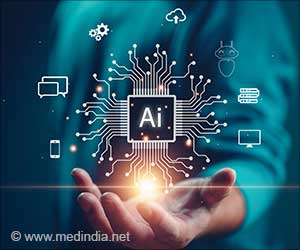ChatGPT aids in diagnosing a 4-year-old's rare condition after 17 doctors failed, showcasing AI's medical potential.
- After three years of unsuccessful attempts to diagnose her four-year-old son's persistent pain and growth issues, a mother turned to ChatGPT for assistance
- ChatGPT, an artificial intelligence tool, has been increasingly relied upon across various industries for streamlining repetitive tasks and freeing up time for more crucial responsibilities
- By sharing her son's symptoms with ChatGPT, the mother discovered that he was suffering from tethered cord syndrome, a rare neurological condition
Growing Reliance on ChatGPT
This growing reliance on the tool was underscored when a woman sought out ChatGPT to diagnose her four-year-old son, who was experiencing both toothaches and stunted growth. Courtney, the mother of the boy known as Alex, expressed her frustration, explaining, "I have to give him Motrin every day, or he has these gigantic meltdowns. If he had Motrin, he was totally fine."After some time, she noticed that Alex's growth had plateaued and consulted a doctor who speculated it might be a post-COVID-19 complication. "He'd grown a little bit. He would lead with his right foot and just bring his left foot along for the ride," she recalled.
When 17 Doctors Failed to Diagnose, ChatGPT Came in Handy
After consulting 17 doctors, the breakthrough came from an unexpected source. Courtney decided to turn to ChatGPT for insight into her son's toothache and stunted growth. By sharing the symptoms with ChatGPT, she learned that Alex was suffering from a rare neurological condition called tethered cord syndrome. She then joined a Facebook group consisting of parents whose children also grappled with the same condition."I went line by line of everything that was in his MRI notes and plugged it into ChatGPT. I put the note in there about how he wouldn’t sit crisscross applesauce. To me, that was a huge trigger that a structural thing could be wrong," she recounted.
Courtney scheduled an appointment with a neurosurgeon, expressing her suspicion that her son might have tethered cord syndrome. The doctor examined the MRI and confirmed Alex's condition. Subsequently, Alex underwent surgery for the condition a few weeks ago.
This case is not the first in which ChatGPT has played a crucial role in diagnosing a medical condition. In March, a Twitter user shared how the AI tool accurately identified a diagnosis for their pet dog when conventional doctors were unable to do so (1✔ ✔Trusted Source
ChatGPT in medicine: an overview of its applications, advantages, limitations, future prospects, and ethical considerations
Go to source).
To conclude, ChatGPT's intervention proved invaluable after a prolonged struggle to diagnose a 4-year-old's pain. This case highlights the potential of AI in healthcare.
- ChatGPT in medicine: an overview of its applications, advantages, limitations, future prospects, and ethical considerations - (https://pubmed.ncbi.nlm.nih.gov/37215063/)
Source-Medindia
















